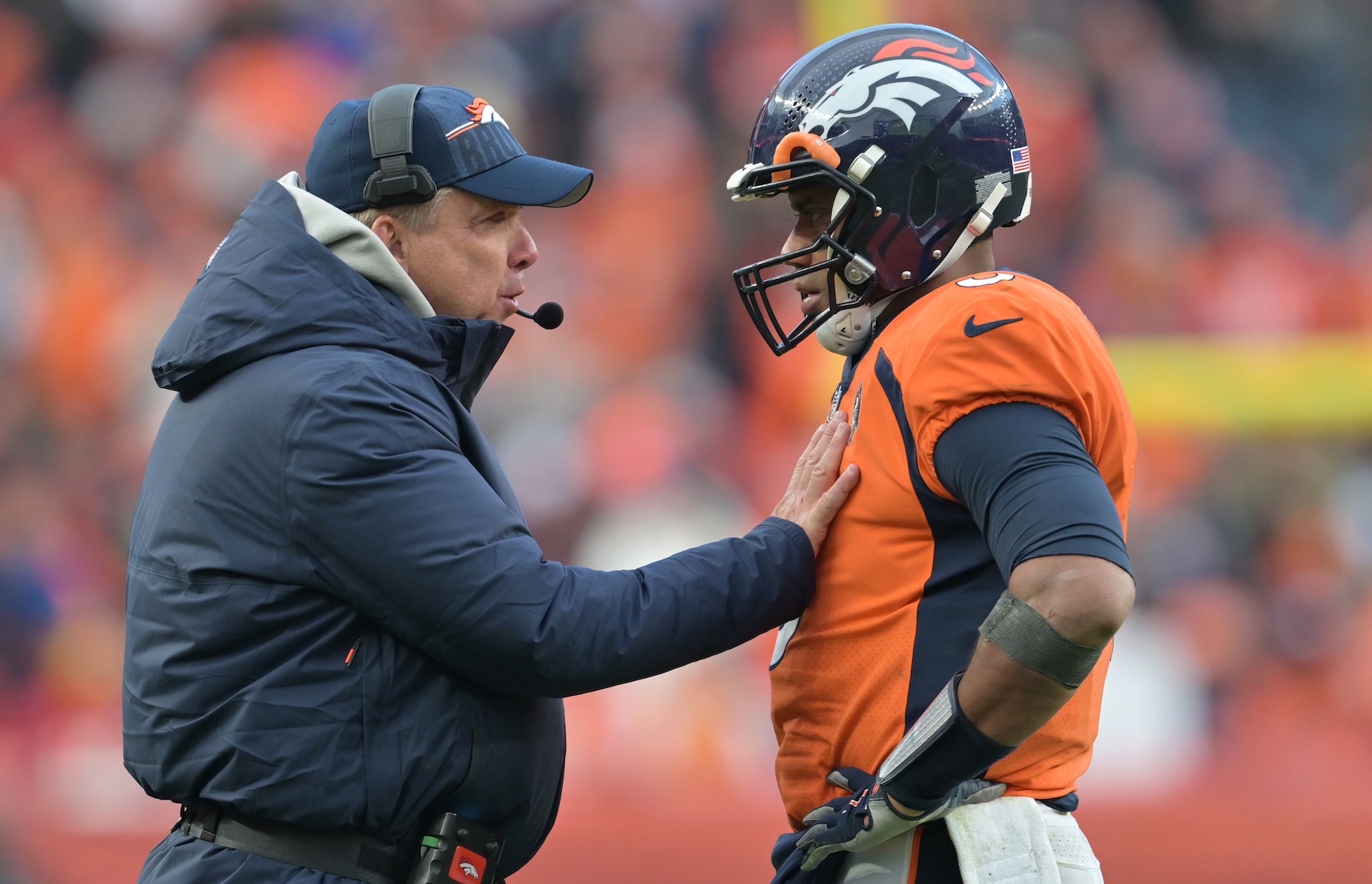In the aftermath of Russell Wilson's slow-motion firing as a Denver Bronco and the Pavlovian responses ("Who wants Russell Wilson now? Where will he go? Is Jarrett Stidham still in the league?"), the part that actually lingers is Sean Payton convincing his bosses that they would be better off tying Wilson’s guaranteed 2024 salary of $39 million to a brick and throwing it through their own front window. And that is the new measure of power in sports, or at least is about to be—how much money can I convince you to eat for my own comfort and well-being?
That is, after all, the real truth of the Wilson demotion/eventual release after a two-year third-grade science-class experiment that succeeded only in getting lots of people fired. Payton walked into the office of new owner Rob Walton and said, "I have an idea, and all I need from you is $39 million." Since Payton's remaining four years under contract has a value of $72 million give or take a few quid, he essentially convinced Walton to invest the equivalent of his own remaining salary to get Jarrett Stidham a few games before he gets tossed off the boat as well.
Oh, and for the record, all the headlines about $85 million are just referring to dead cap money, which isn't the same as actual cap money, in that while it doesn't mean it’s money Walton has to pay, it’s money Payton cannot spend without a clever workaround that always comes in the off-season when the cap rises based on the scads of new dollars that always seem to find their way to the NFL.
But before we get lost in the money, it should be noted that $39 million represents slightly more than six-ten thousandths of one percent of Walton's listed net worth—in other words, used gum money. It’s "I left 20 bucks in my pants and then sent the pants to the dry cleaner" money. But it's the fact that Payton asked, and got it? That is the interesting part because of what it says about how the people with the money view the money, as in, "Yeah, this is expensive, but sell me on it."
It's why Shohei Ohtani's contract looks preposterous only if you're looking up at it. If, as most owners do, you're looking down at it, it seems like a relatively safe risk because you know that it isn't losing $700 million but gambling it to make $3 billion on the back end. And in the case of Wilson, who got caught getting old on a bad team, the $39 million Walton agreed to toss away is barely the second cup of coffee in a holiday breakfast for the family.
No, the big deal is that Payton had the stones to ask Walton to sign off, and the persuasive power to make it seem a defensible request. It's as if he said, "The people who did this are already out the door, so you can't punish them. But you like me, so you shouldn't punish me either. Come on, Robbo, what's it to you?" And the answer is not all that much.
True, the quarterback position looks unusually dire these days—the Tommy DeVito phenomenon lasted all of six weeks, and the fact that it was a phenomenon at all speaks volumes on its own—and Wilson was actually better this year by most statistical measurements than last. But Payton didn't come in to be a caretaker manager, and didn't get paid like one either. He wants his own team and his own players, and his cost is no object because it is no cost to him.
It's worth keeping all this in mind as Jim Harbaugh's name comes up for various NFL jobs as teams decide exactly how much of his tactical craziness is actually tactical and how much is just him being bughouse. He convinced the University of Michigan to spend six entire football games on his honor, which is actually worth more than Payton's $72 million, so his negotiations with any new employer will include the phrase, "How much of your money can I piss away with no visible return to you, on top of my salary and other demands?" The answer to that used to be, "Get out." It is now "Say, that's an interesting proposal you have there. Murphy, go check and see how much we have in the piss-away fund."
And that should be included in any coverage of a new coach hiring in any sport: the new perk of "How much are you giving me that doesn't actually go to me?" Because Sean Payton set his price. And, somehow, we suspect it won't be the last time he does it because he knows one other thing—while Russell Wilson was a sunk cost the day Payton arrived, there will be more, because he has not yet reached Walton's tipping point.






